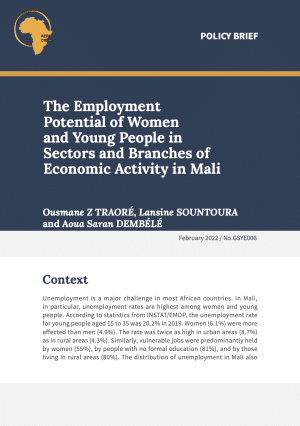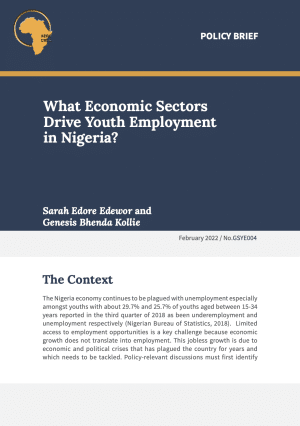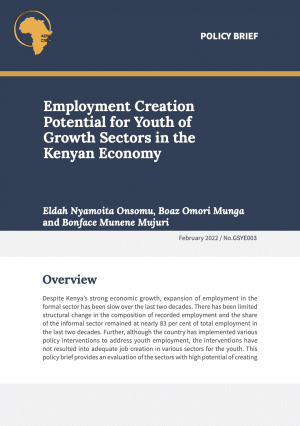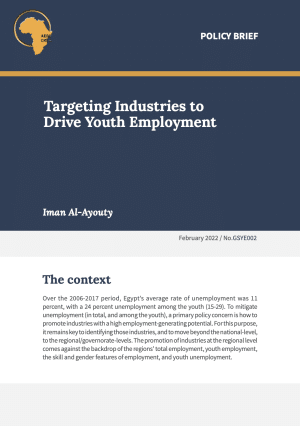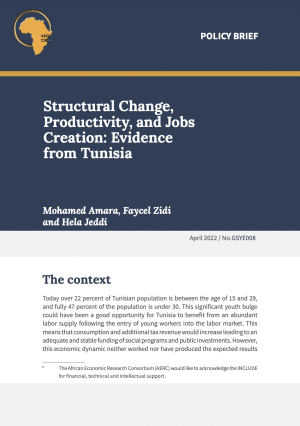
Today over 22 percent of the Tunisian population is between the age of 15 and 29, and 47 percent of the population is under 30. This could have been a good opportunity for Tunisia to benefit from an abundant labor supply following the entry of young workers into the labor market. This means that consumption and additional tax revenue would increase leading to an adequate and stable funding of social programs and public investments. However, this economic dynamic neither worked nor have produced the expected results in terms of economic growth and employment. The Tunisian economy remains a low- income, slow-growth one with limited fiscal resources, high unemployment rates, high levels of informality, low coverage of social-protection programs and social exclusion of youth.
Growth Sectors for Youth Employment (GSYE) is an African Economic Research Consortium (AERC) collaborative research that is seeking to provide research evidence on which economic sectors have the potential to significantly create employment for youth. The project was commissioned by INCLUDE, with support from the Netherlands Ministry of Foreign Affairs. The project is implemented by AERC in conjunction with the Economic Research Forum (ERF) and the Overseas Development Institute (ODI). The project aims to provide research evidence on the economic sectors with the highest multipliers and potential to create employment opportunities for young people in the continent.
This policy brief presents the country case study of Tunisia, one of the nine countries selected for country-specific research.
You can find more information on this page.
